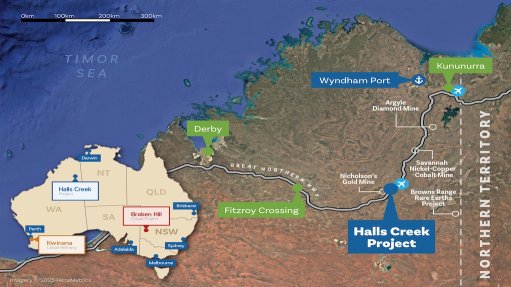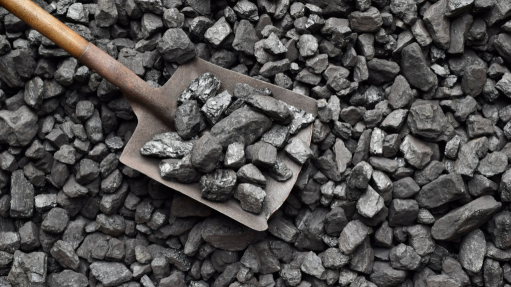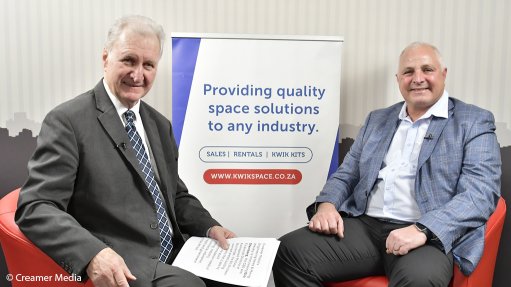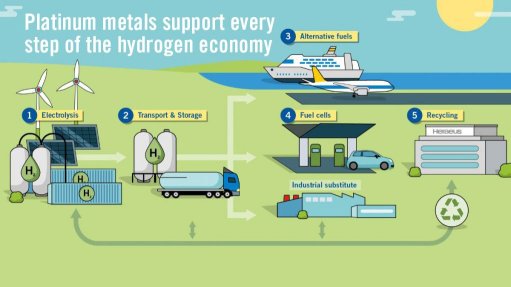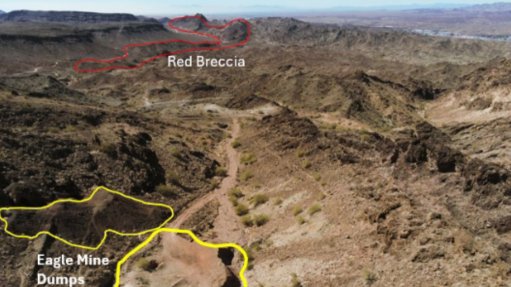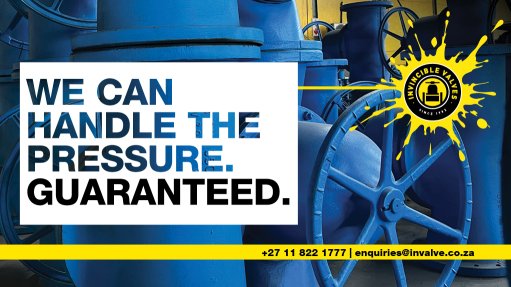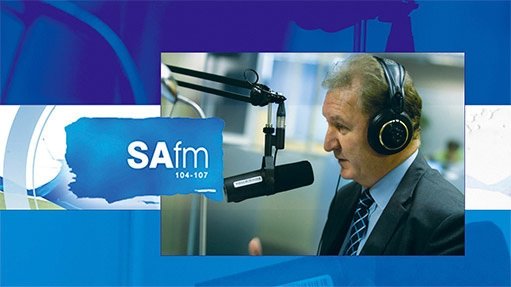Role of hydraulic lubricant in improving efficiency highlighted
Cutting the running costs of a hydraulic or pneumatic system entails that managers and supervisors find alternative ways of enhancing the efficiency of technology, thereby increasing their control over operational variables, says global group of energy and petrochemical companies Shell South Africa commercial technical manager Raymond Abraham.
Harnessing the latest research and development (R&D) and offerings from lubricant suppliers is one way of improving efficiency and, therefore, worth exploring.
Shell has several product ranges to meet its customers’ specific needs, notes Abraham, highlighting the company’s Tellus range of hydraulic lubricants.
The Shell Tellus M range has applications in the industrial and manufacturing sectors, as well as machine use, while the Shell Tellus V range is designed for extended temperature operations for manufacturing and mobile machine use. The Shell Tellus Speciality range comprises detergent-based fluids for use in a hydraulic system, where water contamination can occur.
Abraham explains that using a carefully controlled test cycle, a trial was conducted at a customer’s operation measuring energy savings of up to 5.27% in hydraulic systems that used the Shell Tellus range.
“It helps customers to increase oil life by up to four times, compared with conventional oils, and provides hydraulic pump-wear protection that helps prolong the life of equipment,” he notes.
While most lubricants are manufactured for individual components, the latest generation of hydraulic lubricants – Shell Tellus S4 ME – is, for example, designed to benefit the complete system. “The result is a fluid that is statistically proven to help improve the energy efficiency of a hydraulic system,” Abraham explains.
Maintenance
Shell says, while routine maintenance and inspection should form part of daily opera- tional procedure, this should also include proactive lubrication management.
“Shell offers proactive maintenance to most of its customers, which are mainly mining and manufacturing companies that cannot afford the significant cost of downtime, which, in turn, directly impacts their bottom line,” points out Abraham.
“For such professional services our customers are, in most cases, prepared to pay for these additional services. The value derived far outweighs the investment in ensuring trouble-free operations,” he adds.
Most fluid power circuits, the company says, use either hydraulic fluid or compressed air to operate. While these systems are similar, both have unique operational needs. No matter which of these systems are in place in a factory or operation, proactive maintenance – including lubricant maintenance – will allow for the routine detection and correction of root causes that might lead to equipment failure.
Shell believes that many hydraulic and pneumatic system problems are caused by fluid contamination. By controlling this and other operational variables, operators can extend component life, help maintain system efficiency and correct faults before these lead to unscheduled downtime and expensive repairs.
The Shell Tellus S4 ME allows for effective control of cavitation – the formation of bubbles within liquids – which often leads to fluid contamination, says the company.
Cavitation usually takes place when the volume of fluid demanded by any part of the circuit is more than the volume of fluid being supplied. As a result, the absolute pressure in that specific part of the circuit falls below the vapour pressure of the hydraulic fluid, creating vapour bubbles in the fluid.
These implode when compressed, generating an intense shockwave that creates an audible sound. It usually occurs when a liquid is subjected to rapid changes of pressure that cause the formation of cavities. If left unchecked, cavitation can cause metal erosion and subsequent damage to certain hydraulic components, owing to the contamination of the hydraulic fluid. As such, cavitation can potentially cause major mechanical failure of either the pump or motor in the long term.
The Shell Tellus S4 ME has been developed as a variable-temperature hydraulic oil; it therefore maintains its viscosity across a range of temperatures. It also contains new polymer technology, comprising heat- activated polymers, which ensure that the oil retains the correct viscosity when its temperature increases after a cold start-up. The polymers also have substantially high shear strength.
This keeps the polymers stable and ensures that viscosity is maintained, even under high loads. As such, these hydraulic oils can be used in a range of applications, such as lifts and cranes, high-precision presses, off-road hydraulics, diggers and earthmovers, as well as in opencast mine machinery.
Global R&D Spend
More than $1-billion a year is spent globally by Shell on R&D to ensure its products meet customer needs, says Abraham.
“Some of the services we offer include providing lubrication for heavy mining equipment, troubleshooting and problem solving to isolate the root causes of problems typically found in hydraulic systems,” he explains.
“We also perform lube audits of systems to ensure the optimum lubrication of systems. Shell also provides a world- leading Lube Analyst oil-condition moni- toring service, which is designed to help improve our customers’ business performance and reduce downtime,” Abraham tells Engineering News.
“Shell believes in providing our customers with peace of mind and invests heavily on R&D to achieve this,” he says.
Shell spends $1-billion on R&D that ensures that the company not only meets but exceeds the requirements of modern technology equipment used by its customers.
To complement this, the company’s 3 000 scientists and team of technical advisers provide support for its clients globally.
“Shell has a technical team of 30 people locally, which exceeds the average oil company’s typical number of people providing technical support,” explains Abraham.
The company also invests heavily in training and upskilling of technical staff to meet the challenges of providing technical support for its clients.
Comments
Press Office
Announcements
What's On
Subscribe to improve your user experience...
Option 1 (equivalent of R125 a month):
Receive a weekly copy of Creamer Media's Engineering News & Mining Weekly magazine
(print copy for those in South Africa and e-magazine for those outside of South Africa)
Receive daily email newsletters
Access to full search results
Access archive of magazine back copies
Access to Projects in Progress
Access to ONE Research Report of your choice in PDF format
Option 2 (equivalent of R375 a month):
All benefits from Option 1
PLUS
Access to Creamer Media's Research Channel Africa for ALL Research Reports, in PDF format, on various industrial and mining sectors
including Electricity; Water; Energy Transition; Hydrogen; Roads, Rail and Ports; Coal; Gold; Platinum; Battery Metals; etc.
Already a subscriber?
Forgotten your password?
Receive weekly copy of Creamer Media's Engineering News & Mining Weekly magazine (print copy for those in South Africa and e-magazine for those outside of South Africa)
➕
Recieve daily email newsletters
➕
Access to full search results
➕
Access archive of magazine back copies
➕
Access to Projects in Progress
➕
Access to ONE Research Report of your choice in PDF format
RESEARCH CHANNEL AFRICA
R4500 (equivalent of R375 a month)
SUBSCRIBEAll benefits from Option 1
➕
Access to Creamer Media's Research Channel Africa for ALL Research Reports on various industrial and mining sectors, in PDF format, including on:
Electricity
➕
Water
➕
Energy Transition
➕
Hydrogen
➕
Roads, Rail and Ports
➕
Coal
➕
Gold
➕
Platinum
➕
Battery Metals
➕
etc.
Receive all benefits from Option 1 or Option 2 delivered to numerous people at your company
➕
Multiple User names and Passwords for simultaneous log-ins
➕
Intranet integration access to all in your organisation






